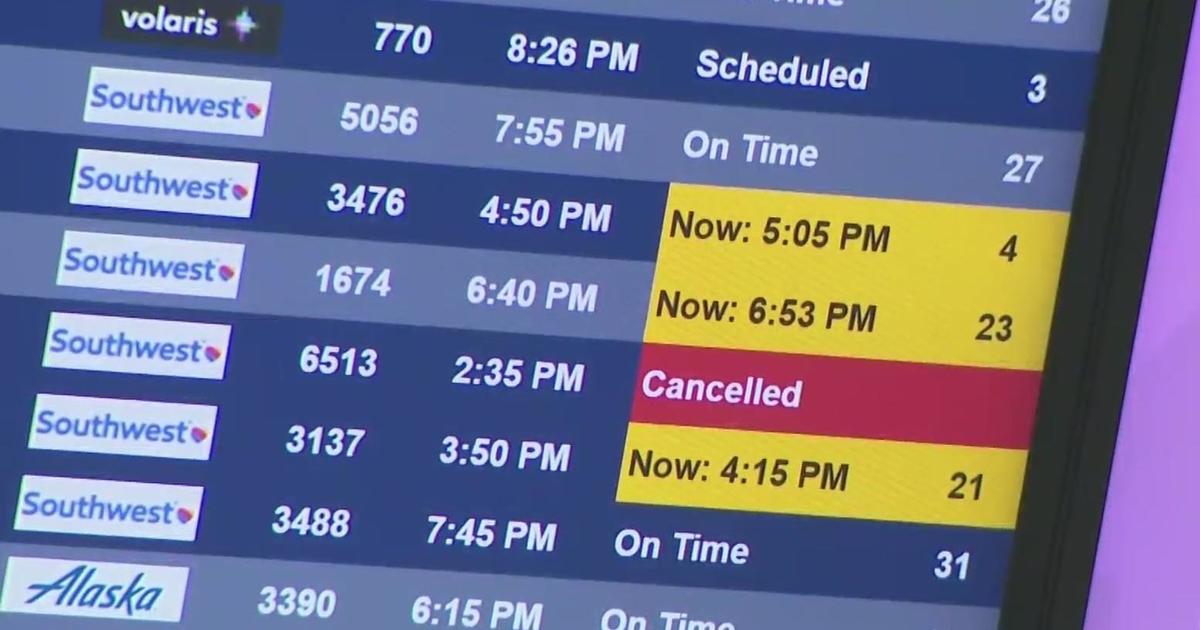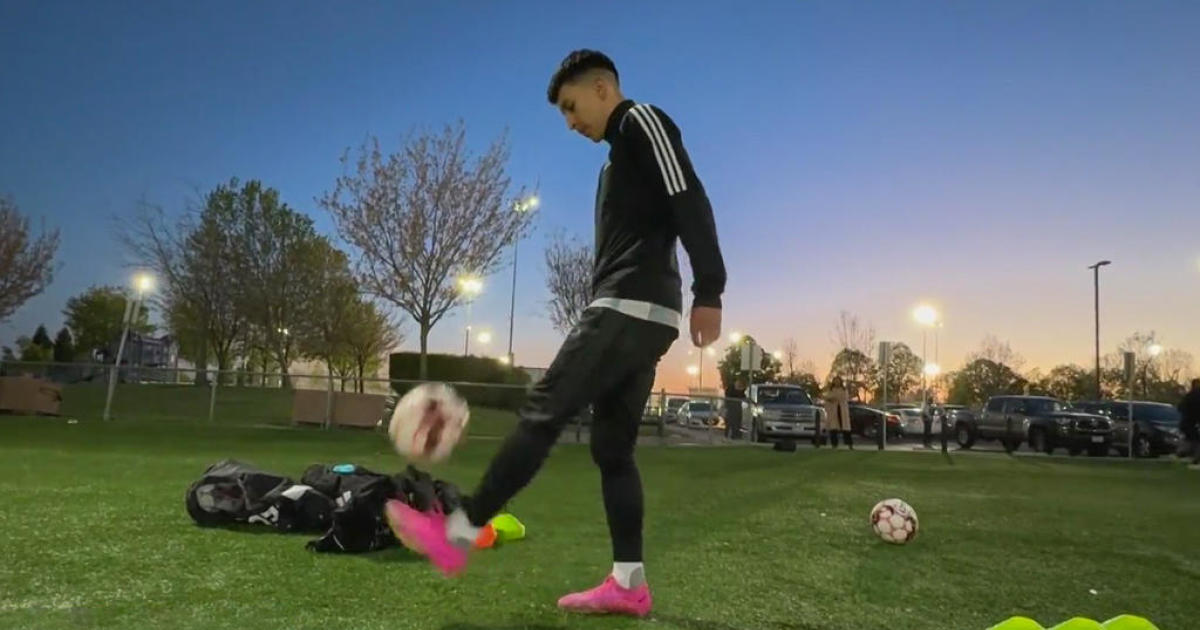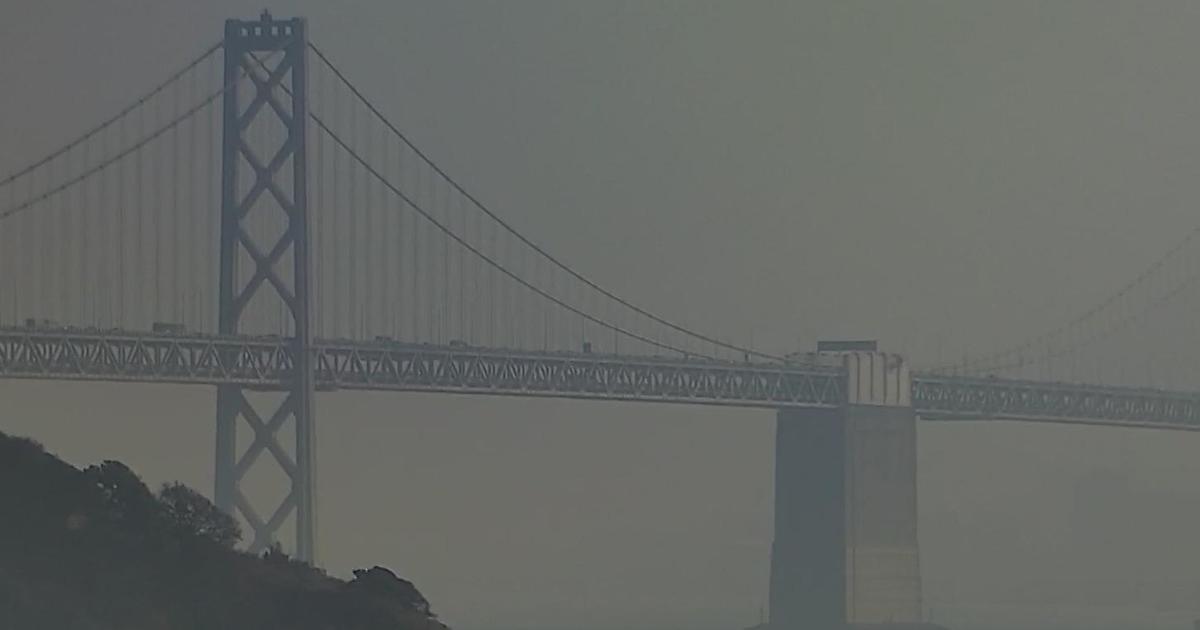California's Gun Seizure Squad Finds An Arsenal Under A Bed
(CNN) -- Piled high with clothes and junk, a bedroom in this small stucco home looks like it belongs to a hoarder.
But when Special Agent Sam Richardson spots a green ammunition can, he knows he has to dig further.
"There's a fair chance he's going to have a gun," Richardson says.
In another room, guarded by another agent, sits 57-year-old Timothy Pope. He once registered weapons legally. But he lost the right to have guns when he was convicted of a felony for possessing a destructive device.
California keeps a list of people who should have surrendered or sold their weapons and sends agents like Richardson to check on homes and seize any weapons that should not be there.
Back in the bedroom -- as a "Law and Order" rerun blares from down the hall -- Richardson lifts up a mattress to reveal an assault-style weapon and ammunition.
"It's like blood in the water," he said. "What else could this guy have in here?"
For the next hour, agents from the California Attorney General's Division of Law Enforcement haul out more weapons than they had listed in this suburban Los Angeles home: three assault-style rifles, a shotgun, a pistol, and 6,500 rounds of ammunition.
One of the rifles is outfitted with a bump stock, which allows a semi-automatic weapon to function similarly to a machine gun.
Two of the rifles are considered "ghost guns" -- weapons free of serial numbers so they can't be traced by law enforcement.
"Can you imagine if these guns got in the wrong hands, through a burglary?" said Special Agent in Charge Tony LaDell.
Pope, who spoke freely to CNN while sitting in handcuffs, acknowledged a judge told him he couldn't possess weapons.
"I had them prior to being arrested and I didn't think about it, or take the action to get them out of my possession," Pope said.
As state agents buzzed through the house, gathering evidence that could be used against him, Pope was asked how he feels now.
"Stupid," he said.
For the team of agents, it's another name cleared from their database. But there are more than 10,000 cases still to clear and more are added frequently.
"This is one of the most dangerous jobs in law enforcement," Richardson said. "It is not a job where you run up to the front door and hopefully they hand you their gun."
'Only in California'
The gun seizure squads are part of California's strict gun control laws that were further tightened in January after voters backed a proposition for the banning of large-capacity magazines, an end to ammunition being sold online and shipped directly to homes, and new procedures to make sure those who shouldn't have guns don't have guns.
The Armed Prohibited Persons System (APPS) includes people who are not allowed to own a weapon because of a conviction in a felony or violent misdemeanor. But it also includes people who have not been convicted but have restraining orders against them, or who have mental health problems. The latter most often includes people who have been placed on a three-day mental health hold by law enforcement or a physician, Richardson said.
"We're not telling anyone who's law abiding ... that they're going to have to give up anything," said California Attorney General Xavier Becerra. "We're talking about folks who have proven themselves unworthy."
"Only in California do we have (this) law," Becerra added. "And we encourage other states, in fact the country, to do the same thing."
But there are questions over whether the law is a fix for the nation's epidemic of mass shootings. California has not been immune to the problem, even with the APPS law in place. The idea began in 1999 but didn't coalesce into a usable database until 2006.
The San Bernardino shooters, Syed Farook and Tashfeen Malik, did not have any prior convictions before killing 14 people at a work party in 2015.
Elliot Rodger -- who killed six people in 2014 across Isla Vista -- had mental health issues well known to his family. But when sheriff's deputies visited his home after relatives found social media posts about suicide and killing people, they "determined he did not meet the criteria for an involuntary hold," Sheriff Bill Brown said at the time. It was after that shooting that California introduced Gun Violence Restraining Orders, which allows a close family member or police to request guns be removed from someone who it is feared will hurt themselves or others with firearms.
California is now one of five states to have such "red flag" laws. Such measures have been talked about especially since it emerged that a woman close to the Parkland school shooter had warned the FBI about six weeks before the massacre that he was "going to explode." In California, if granted a restraining order by a judge, local police would be allowed to confiscate the subject's weapons and put his or her name into the APPS database for follow-up by APPS agents.
Craig DeLuz of the Firearms Policy Coalition doesn't object to the fundamental intention of the law to keep guns out of the wrong hands, but he questions whether it will work.
"The idea of controlling firearms is not going to stop evil people from doing evil things," he said.
He also claimed his office had worked with people from whom guns were wrongly taken.
"They don't tell you how many times they've had to give back the guns they've seized," DeLuz said.
"I also think it's important," he added, "that they send out regular notices, even annually, letting people know who is on the list and, if they're not supposed to be, how they can get off."
A spokesperson for the California attorney general's office defended the APPS program. "The system works and the information that is provided to us comes from local law enforcement, the courts, and mental health facilities," the office said in a statement.
'We're doing something'
State officials say one thing is for sure -- they need more staff and additional funding to scale up the program and increase its effectiveness.
Attorney General Becerra made a plea for more resources at a press conference last week, standing feet away from a cache of weapons that comprised one of the largest busts by the APPS unit to date: 28 firearms, including 13 AR-15-style rifles, and 66,000 rounds of ammunition, including tracer bullets that allow the shooter to see the path of the bullet.
Similar ammunition was used in the Las Vegas massacre, investigators said.
"In California we're doing something," Becerra said. "That doesn't mean we're not immune, but at least we're doing something."
Since 2013 the program has removed more than 18,000 weapons from California streets. Special agent Richardson has personally seized thousands of those weapons, and says the true success of the program may never be known.
"There's no way to measure what violence may have happened if we had not been doing the job," he said.
© Copyright 2018 CNN. All Rights Reserved. This material may not be published, broadcast, rewritten or redistributed.



